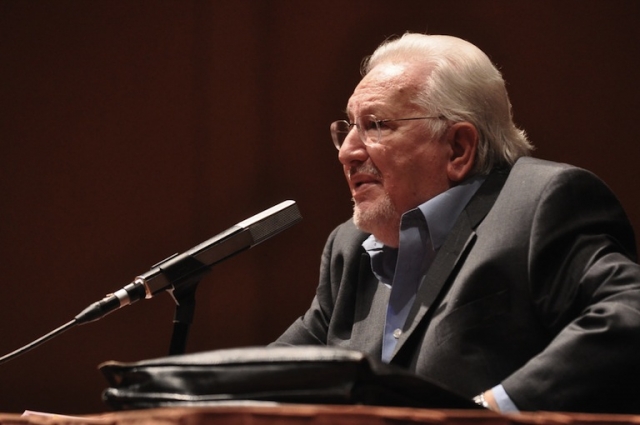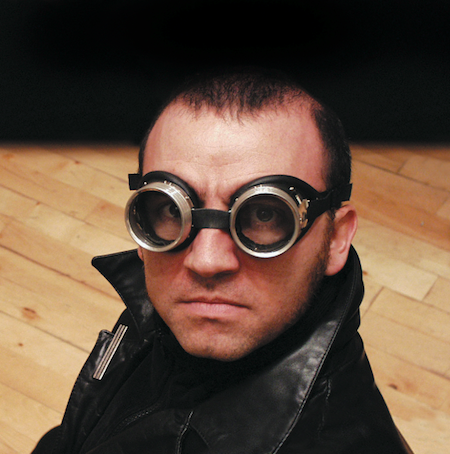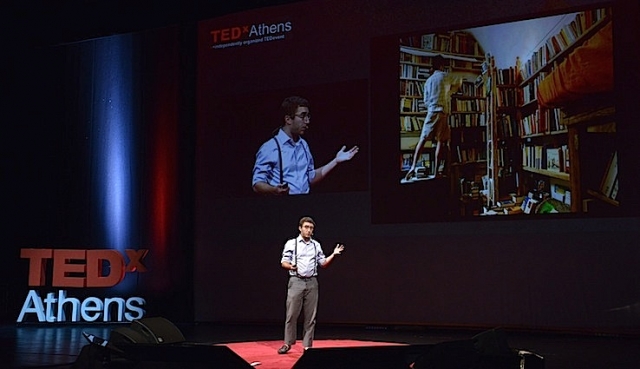 There are children and young people with problems in Greece too, confirmed the specialist in psychiatry and child psychology, Mateos Yosafat. According to him, the crisis that the country is experiencing today is not only financial, but also social and psychological. The new generation is lost in the process of changing values and the young people of Greece pay the cost of the lost road.
There are children and young people with problems in Greece too, confirmed the specialist in psychiatry and child psychology, Mateos Yosafat. According to him, the crisis that the country is experiencing today is not only financial, but also social and psychological. The new generation is lost in the process of changing values and the young people of Greece pay the cost of the lost road.
The lack of responsibility for the actions taken has become a typical feature of the nation in recent decades. This phenomenon occurs at different levels in his opinion - "It is not my fault, others are responsible for my condition", "It is not my party, but the opposition that is to blame for the state of the country", "I am not responsible for the situation in which I am, the foreigners are to blame."
In Greece, we are inclined to reflect our problem on others, says the psychologist. One’s desire to contribute to the common good is rarely seen in society and the ego prevails in the incentives for decision-making.
"We do not know how to behave with each other. Illegality and overconsumption exist in society and we were taught for many years that they were the purpose of life. So, we have lost our moral values. There is no team spirit, and (as we know from psychoanalysis) a person is happy only when he or she exists and develops in a network of relationships and commitment. This relates to the most general sense of love and the ability to live with the people around us in our lifetimes."
Yosafat stresses that the issue is not ethical but purely psychological. "A large part of Greek youth seeks satisfaction in the greater consumerism, drugs, sex," says the psychologist.
A person who offers nothing to society can feel neither satisfied nor happy. Hence, the problems of young people who feel frustrated and then destructive forces awaken inside them.
Yosafat was the director of the Finchley Centre for Child and Family Therapy in London for many years. After decades of working abroad, he has decided to return to Greece, where he is considered one of the founders of the group family therapy in the country. So far, he has trained over 400 professionals working in the field of group family therapy. They work in hospitals, clinics and private practices. This area trains people with behavioural problems to live together with others, to be complete citizens and to contribute towards their personal and common development.
In order for the society to be more effective and to function healthily in a broader context, Mateos Yosafat proposes that the curriculum includes a special class in "Life" from a young age. The aim of this class will be to teach children how to build healthy human relationships, know good from evil and make choices based on positive examples. His theory is that when a country is in crisis, the family, being the smallest social unit, is able to reform. "The crisis can turn us into a positive direction. It can make us understand that we are part of a whole, not just individuals." So, now is the time to introduce such a practice, which will create conditions for the development of a new more sustainable future generation.
"The more you work, the luckier you will become," said Victor Cohen, who is a graphic designer and  works for magazines such as Time, Newsweek, Forbes and the New York Times. He spoke about how you can be successful even if you live in a crisis. Cohen said that he followed the advice of someone who he had met at the beginning of his career. "To be successful, you have to know everything about something and something about everything." The designer is clear that one has to devote tens of thousands of hours of one's life to become really good at what one does. It takes time, hard work and strong organization.
works for magazines such as Time, Newsweek, Forbes and the New York Times. He spoke about how you can be successful even if you live in a crisis. Cohen said that he followed the advice of someone who he had met at the beginning of his career. "To be successful, you have to know everything about something and something about everything." The designer is clear that one has to devote tens of thousands of hours of one's life to become really good at what one does. It takes time, hard work and strong organization.
"It does not matter who you ask, whether a virtuoso guitarist or a successful businessman. Everyone will tell you that success is achieved after a series of failures and thousands of hours of work. There is no other way." Therefore, the moment you find the area in which you want to progress, you have to indulge one hundred percent in the name of development. If someone has not found the exact thing, he should not give up but continue searching. In his opinion, talent is the patience that one has to become a specialist and it takes time to gain it.
 An example that anyone can become successful without pursuing an aggressive corporate career is the story of Craig Walzler, who decided practically for fun to open a bookshop on the island of Santorini 10 years ago. As a student in the final year of his studies, Craig and a friend of his went on holiday to the island with the most beautiful sunset in the northern hemisphere. By the middle of their vacation, the two young people had read the books they had taken with them and remained without any reading material. They decided to buy new books to kill time on the beach, but it turned out that there was neither a bookshop nor a library in Santorini. "We toured the entire island. Once we returned to the hotel, we poured ourselves some wine and decided that we would open a bookshop in order not to allow anyone else to go through our pain," said Craig jokingly. The year was 2002.
An example that anyone can become successful without pursuing an aggressive corporate career is the story of Craig Walzler, who decided practically for fun to open a bookshop on the island of Santorini 10 years ago. As a student in the final year of his studies, Craig and a friend of his went on holiday to the island with the most beautiful sunset in the northern hemisphere. By the middle of their vacation, the two young people had read the books they had taken with them and remained without any reading material. They decided to buy new books to kill time on the beach, but it turned out that there was neither a bookshop nor a library in Santorini. "We toured the entire island. Once we returned to the hotel, we poured ourselves some wine and decided that we would open a bookshop in order not to allow anyone else to go through our pain," said Craig jokingly. The year was 2002.